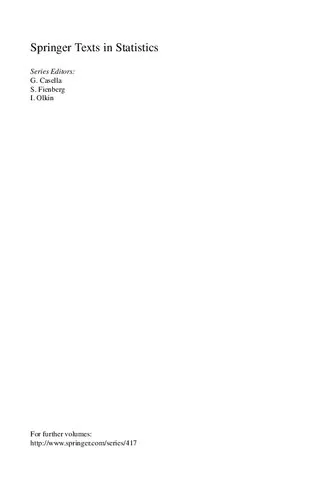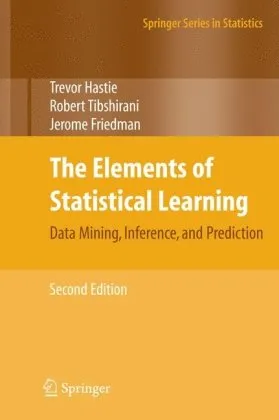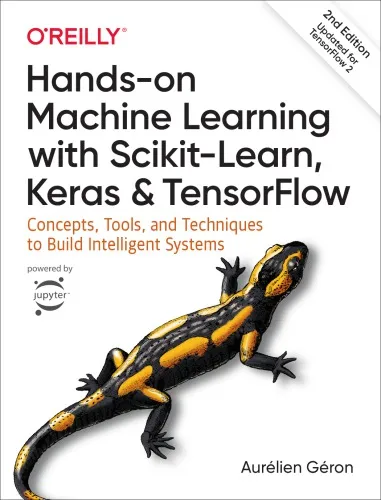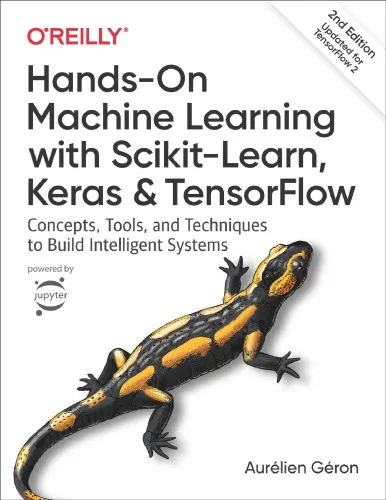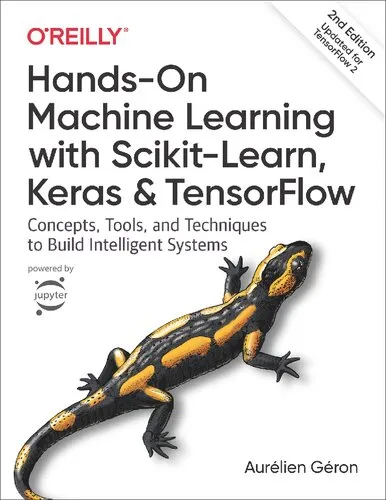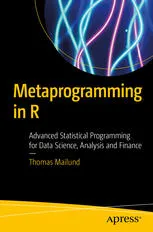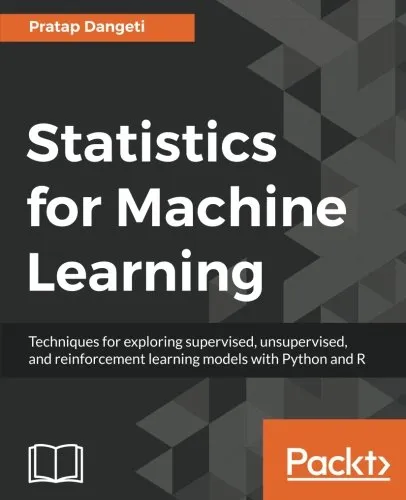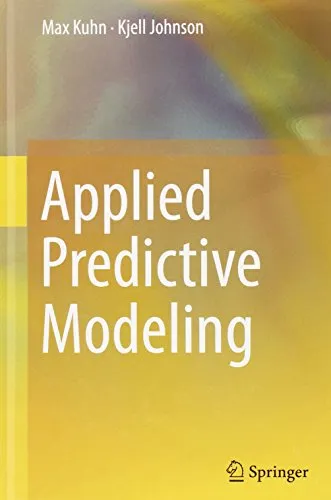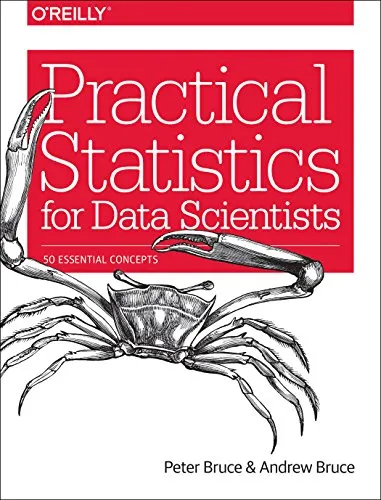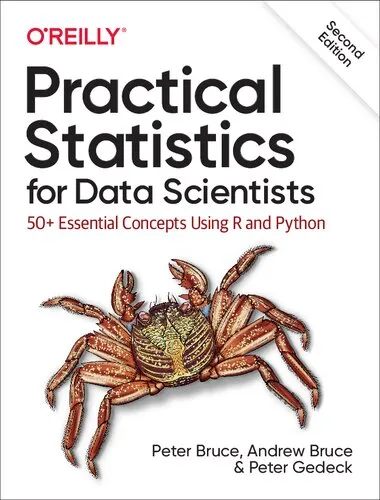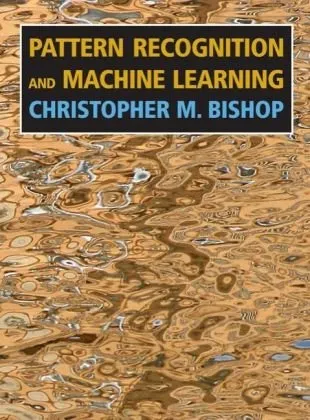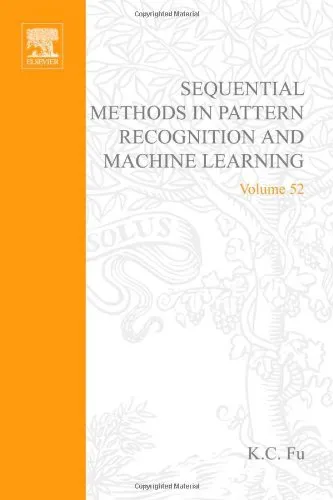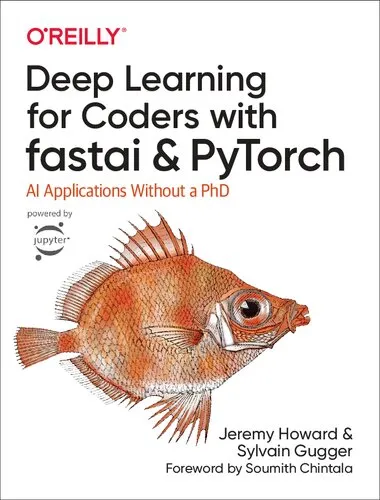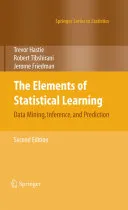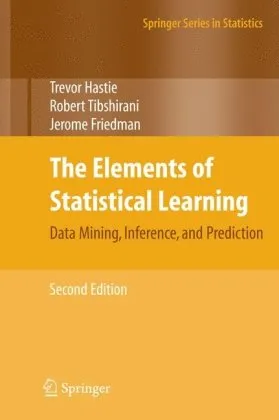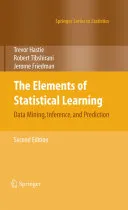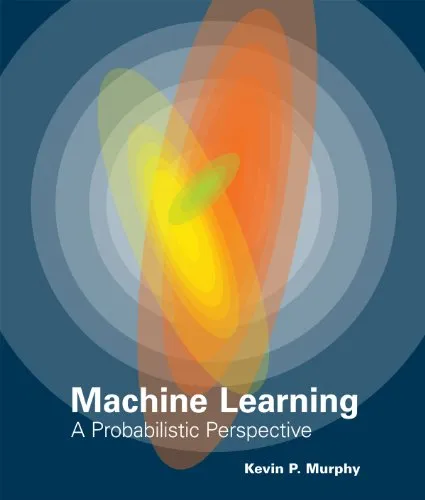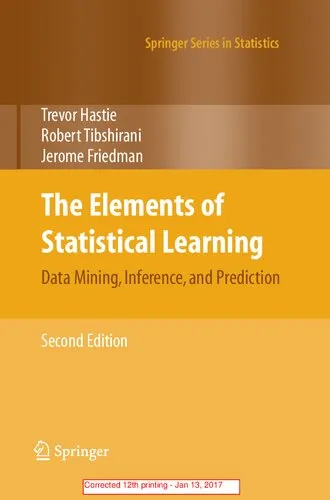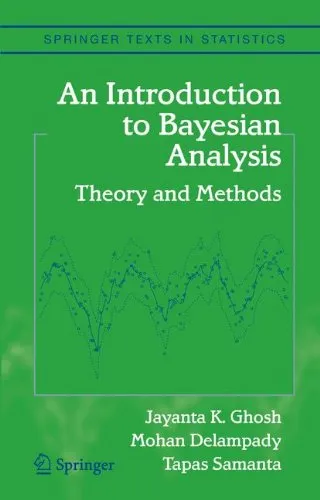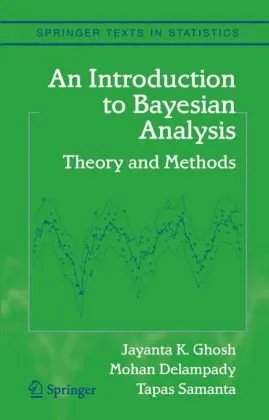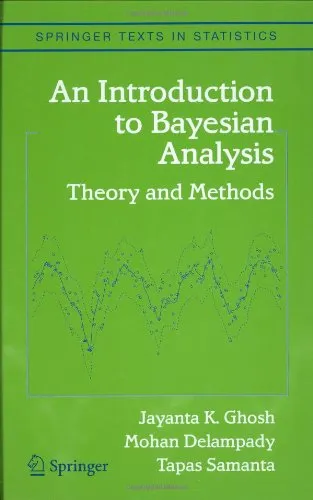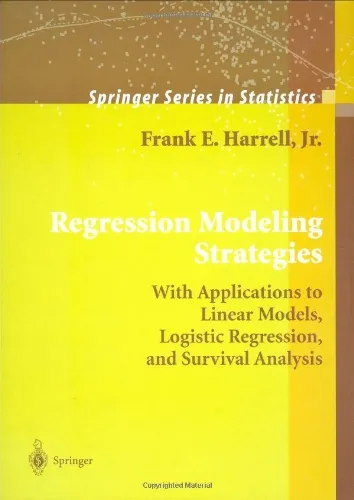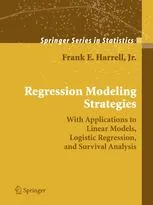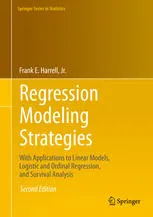Introduction to Statistical Learning
4.7
بر اساس نظر کاربران

شما میتونید سوالاتتون در باره کتاب رو از هوش مصنوعیش بعد از ورود بپرسید
هر دانلود یا پرسش از هوش مصنوعی 2 امتیاز لازم دارد، برای بدست آوردن امتیاز رایگان، به صفحه ی راهنمای امتیازات سر بزنید و یک سری کار ارزشمند انجام بدینکتاب های مرتبط:
مقدمه
کتاب Introduction to Statistical Learning به عنوان یکی از منابع معتبر و محبوب در زمینه یادگیری آماری و Machine Learning شناخته میشود. این کتاب توسط نویسندگان برجستهای همچون James G, Witten D, Hastie T و Tibshirani R نوشته شده است و هدف آن ارائه مفاهیم پایه و تکنیکهای اصلی در حوزه یادگیری ماشین با استفاده از زبان برنامهنویسی R است.
خلاصهای از کتاب
کتاب Introduction to Statistical Learning در ده فصل طراحی شده و هر فصل به موضوعات خاصی در زمینه یادگیری آماری میپردازد. از مباحث اولیه مانند پیشبینی و مفهوم خطای مدل شروع کرده و تا موضوعات پیشرفتهتری همچون روشهای resampling و مدلهای Support Vector Machines ادامه میدهد. نویسندگان با نگاهی کاربردی و استفاده از مثالهای واقعی، سعی در نزدیک کردن مفاهیم پیچیده به زبان ساده برای خوانندگان دارند.
مهمترین نکات و مفاهیم
- توضیح روشهای Regression و Classification و کاربردهای عملی آنها.
- استفاده از Cross-Validation و Bootstrap برای ارزیابی مدلها.
- درک اهمیت الگوریتمهای Machine Learning مختلف مانند Lasso, Ridge و Tree-based methods.
- توضیح مدلهای پیچیدهتر مانند Neural Networks و Support Vector Machines.
- آشنایی با نرمافزارهای آماری و ابزارهای مورد استفاده در تجزیه و تحلیل دادهها.
نقلقولهای معروف از کتاب
«آمار یادگیری پیچیدگیهایی دارد که گاهی نمیتوان به سادگی آنها را با دادههای واقعی تطبیق داد، اما اساساً همه چیز درباره یافتن الگوها در یک جامعه دادههاست.»
«هدف اصلی یادگیری ماشین این است که مدلها بتوانند بر روی دادههایی که تاکنون ندیدهاند عملکرد خوبی داشته باشند، و نه تنها بر روی دادههای آموزش.»
چرا این کتاب مهم است؟
کتاب Introduction to Statistical Learning با زبانی ساده و قابل فهم نوشته شده است که آن را برای دانشجویان و حرفهایهایی که تازه وارد این حوزه شدهاند، به گزینهای ایدهآل تبدیل کرده است. تکنیکهای توضیح داده شده در این کتاب نه تنها از منظر تئوری بلکه به صورت عملی و کاربردی نیز بررسی شدهاند. این رویکرد کاربردی به خوانندگان امکان میدهد که به راحتی بتوانند مفاهیم را در پروژههای واقعی به کار بگیرند. علاوه بر این، کدنویسی با R در این کتاب باعث میشود تا خوانندگان بتوانند به سادگی مفاهیم تئوری را به عمل تبدیل کنند و دست به تجربههای عملی با دادهها بزنند.
Introduction to the Book
"Introduction to Statistical Learning" serves as a comprehensive guide for individuals interested in the burgeoning field of data science and statistical learning. Authored by Gareth James, Daniela Witten, Trevor Hastie, and Robert Tibshirani, the book is broadly hailed for its accessible approach to introducing complex statistical concepts. It is an essential read for those seeking to understand the methodologies and applications of statistical learning, providing a foundational knowledge that is critical in today's data-driven world.
Detailed Summary
The book provides an expansive overview of the principal tools and methods used in the process of statistical learning and data mining. Beginning with introductions to core statistical concepts, it gently guides the reader through more advanced topics like linear regression, classification, resampling methods, linear model selection, and regularization. It then transitions into more sophisticated areas such as non-linear methods, tree-based methods, support vector machines, and unsupervised learning. Each chapter is designed to build on the previous, ensuring that the reader gains both theoretical understanding and practical insights over a wide array of topics.
Emphasizing practical applications, the book is equipped with accompanying R code, allowing readers to implement the statistical methods directly and learn by doing. This hands-on approach significantly enhances the learning experience, making the statistical theories more relatable and understandable.
Key Takeaways
1. Statistical learning is essential for uncovering patterns and insights from data, making it an invaluable skill in numerous domains.
2. The book highlights the importance of balancing theoretical knowledge with practical application. It enables the reader to understand not just how to perform a particular statistical method but also when and why it should be used.
3. A pivotal lesson is in the understanding and handling of overfitting, a common pitfall in statistical modeling, which is addressed through various techniques discussed in the text.
4. The combination of statistical methodology with computational tools, especially R, is emphasized as key to effectively applying statistical learning techniques in real-world scenarios.
Famous Quotes from the Book
- "In today’s world, more than ever before, we have access to vast amounts of data, and we need ideas and tools to extract useful information from it."
- "A good learner requires both intuition as well as technical mastery—without understanding, one's power is wasted; without skill, one's insight is unrealized."
Why This Book Matters
"Introduction to Statistical Learning" is more than just a textbook; it is a comprehensive roadmap for navigating the dynamic and often complex terrain of statistical learning. As data becomes increasingly central to decision-making in diverse sectors, the ability to analyze and interpret data effectively is paramount. This book meets the crucial need for a robust educational resource that blends theory with practice, enabling readers to develop both a deep understanding and a practical skill set.
The authors, who are renowned experts in the field, bring a wealth of experience and insight, making complex concepts approachable and relatable. By addressing a wide spectrum of statistical learning techniques and providing real-world datasets for illustration, the book is an invaluable companion whether you're just setting out on your journey in data science or looking to deepen your knowledge.
دانلود رایگان مستقیم
شما میتونید سوالاتتون در باره کتاب رو از هوش مصنوعیش بعد از ورود بپرسید
دسترسی به کتابها از طریق پلتفرمهای قانونی و کتابخانههای عمومی نه تنها از حقوق نویسندگان و ناشران حمایت میکند، بلکه به پایداری فرهنگ کتابخوانی نیز کمک میرساند. پیش از دانلود، لحظهای به بررسی این گزینهها فکر کنید.
این کتاب رو در پلتفرم های دیگه ببینید
WorldCat به شما کمک میکنه تا کتاب ها رو در کتابخانه های سراسر دنیا پیدا کنید
امتیازها، نظرات تخصصی و صحبت ها درباره کتاب را در Goodreads ببینید
کتابهای کمیاب یا دست دوم را در AbeBooks پیدا کنید و بخرید
1680
بازدید4.7
امتیاز0
نظر98%
رضایتنظرات:
4.7
بر اساس 0 نظر کاربران
Questions & Answers
Ask questions about this book or help others by answering
No questions yet. Be the first to ask!
